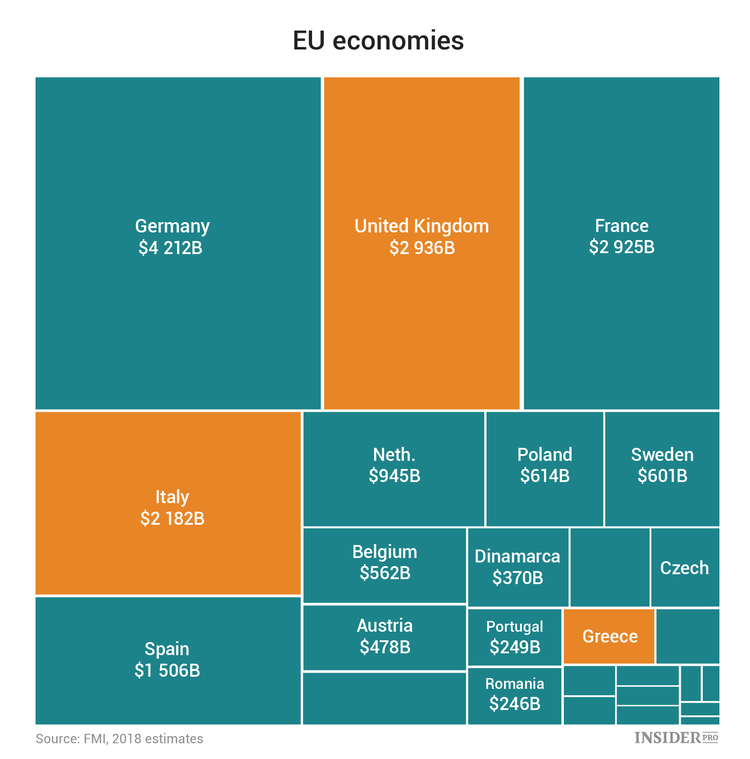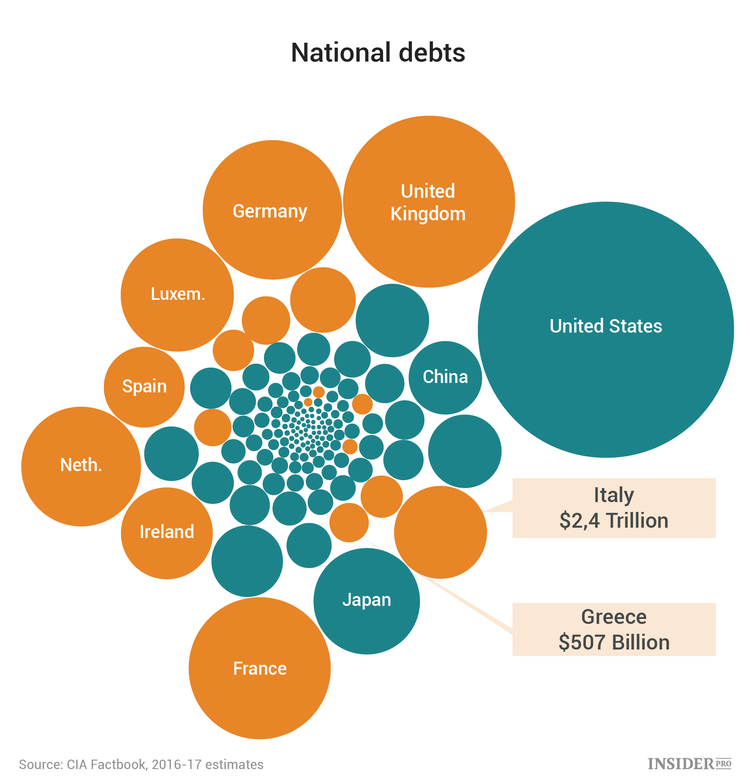Almost ten years have passed after protensive Greek debt crisis and now political events in Italy fuel concerns about European financial system and single currency. But this time we are talking about quite different figures.
Desmond Lachman, American Enterprise Institute member, wrote in recent article:
"The economy of Italy is 10 times larger than that of Greece, which caused the chock in the Eurozone with its debt crisis. If Italy is forced to quit the monetary agreement, the single currency is unlikely to survive in its present form. "
Since the Great Recession Italian economy is struggling with a high debt loan – on the back of economic problems of a similar scale Greece turned out to be in a deep recession and forced to reduce the volume of public services. Additionally, the debt crisis is the main factor of political instability – several governments were not able to resolve it.
The last political crisis began last weekend – the Prime Minister Carlo Cottarelli could not get enough support from the largest political parties, even to form an interim government. Attempts to appoint the cabinet have been continuing since March, and the latest failure can force the President Sergio Matarella to call new Parliament elections.
Currently Italy's debt already amounts almost 132% of GDP, while the EU allows the debt peak of 60% GDP. Also Italian banks are under the pressure of overdue loans, which threatens the financial stability.
At the same time while the total debt of Greece, which through the international assistance has almost out of the acute phase of the crisis, amounts less than €300 billion, Italy’s debt exceeds €2trillion. The ESM stabilization fund, operating in Europe, is unable to redeem this debt.
On Tuesday the Central Bank of Italy warned that the country is "just a few steps away" from the investor’s confidence loss – over the years the largest sale in financial markets has occurred. It is connected with concerns that the new elections could in fact mean a voting for leaving the Eurozone.
Last year British voters approved Brexit, and although the leaders of the European Union and the United Kingdom are still discussing the conditions of the"divorce," the similar move in Italy could deal a fatal blow to the 25-year political and economic union.
Political Impasse
After the overall elections in March, where two populist parties – declaiming EU membership “League of the North” and oppositional to the establishment “Five Star Movement” – showed good results, Italy found turned to be in a political impasse.
Even if the populist parties stop calling for Eurozone exit, their strengthening will widen the political gap with Brussels. This crisis brought back to the agenda the forgotten problem of the political gap between Germany and the "peripheral" Europe economies: Greece, Italy and Spain. And this gap also does not facilitate the solution to the problem of Italian debt.
Market Reaction
Following Italian events, the main European indices are declining. By this means on Tuesday the capitalization index of the Milan Stock Exchange FTSE MIB lost 2.7%, in Britain the FTSE index fell by 1.26%, German Dax fell by 1.58%, French Cac 40 – by 1.3%.
Two-year Italian bonds crashed in price, their yield made the biggest bounce exceeding 2% for the first time since 2013, which, in its turn, called the drop of banks (Intesa Sanpaolo, BPER Banca, Unicredit UBI Banca ) shares, that invested in theItalian national debt. The European index Stoxx 600 fell by 1.38%.on Tuesday.




